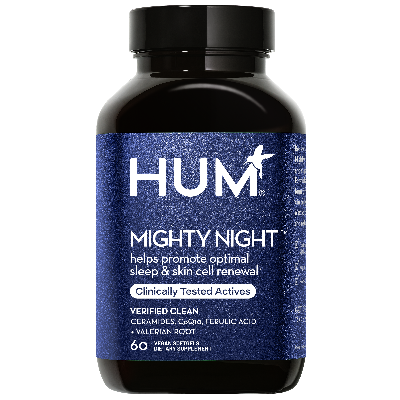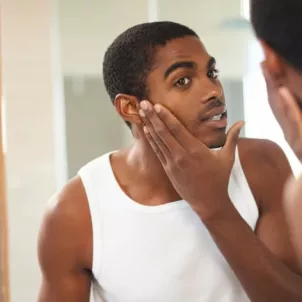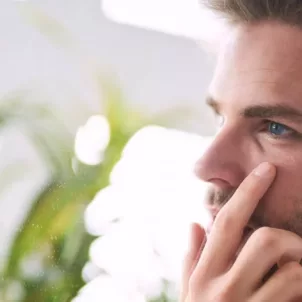Medically Reviewed By
Gaby Vaca-Flores, RDN, CLE
Registered Dietitian Nutritionist
The skincare industry has a valuation of $135 billion and counting, with the average woman spending about $313 per month on beauty products and rituals according to 2017 study. Thinking about these products in dollars and cents, I became curious: How can we ensure that our nightly skin routines are working to keep us healthy and radiant? To better understand what our skin does while we’re sleeping, plus what time to sleep for skin renewal, I spoke with Ronald Moy, MD, a renowned cosmetic surgeon and dermatologist based in Beverly Hills.
WHY IS SLEEP SO IMPORTANT FOR OUR SKIN?
Adequate sleep is essential for our bodies to function properly from both mental and physical perspectives. When we don’t get enough sleep, it can show on our faces, even if we’re meticulous about multi-step skincare routines. “We accumulate sun damage during the daytime, and our DNA repairs enzyme damage while we’re sleeping,” Dr. Moy explains. Aside from sun damage, our skin wards off pollution and free radicals that can cause other forms of wear and tear. Human growth hormones work to repair these issues while we’re sleeping. Produced by the pituitary gland, human growth hormone (HGH) stimulates cell regeneration. Levels can rise during exercise and sleep, but peak during puberty and decline with age.WHAT HAPPENS TO OUR SKIN WHILE WE SLEEP?
Around 9 p.m., our bodies start to wind down and feel the effects of melatonin, and the same goes for our skin. The next part of our restorative sleep cycle begins at 11 p.m., whether we’re actually asleep or not. Sleeping allows the skin to absorb our beloved products while our skin cells regenerate, thus creating more collagen and stronger, healthier skin.By wHAT TIME SHOULD I BE ASLEEP TO BENEFIT FROM Nighttime SKIN REGENERATION?
Our skin cells double between 10 p.m. and 4 a.m., and peak around 2 a.m. In a story for Dr. Oz, Dr. Kulreet Chaudhary noted, “If you are awake past 10 p.m., this process of free radical removal becomes interrupted, and your body’s ability to remove the effects of free radicals is significantly impaired.” This information is important since free radicals can, among other things, cause premature aging. So giving the body the opportunity to repair itself with proper rest is vital for our skin and overall health.Best Ingredients FOR a nighttime skin routine
You likely already have a skincare regimen you know works for you. But two key ingredients are essential for skin cell regeneration and hydration—the latter especially because we lose at least one liter of water while we sleep: retinol and hyaluronic acid. Retinol exfoliates and speeds up cell turnover, while hyaluronic acid is a humectant that can hold 1,000 times its weight in water. Additionally, ceramides are another prized ingredient, especially for people who need to soothe dry and/or irritated skin conditions. In sum, all three skincare products are well worth the hype. There are many products available on the market that range from budget-friendly to worthy investments. My tried and true products from the former camp are The Ordinary’s Granactive Retinoid 2% in Squalane and Hyaluronic Acid 2% + B5. Bigger spends include staple skincare products like Pestle & Mortar’s Pure Hyaluronic Serum and Paula’s Choice Clinical 1% Retinol Treatment. Before you go adjust your sleep schedule, don’t forget to treat your entire body with skincare options for replenishment. CeraVe’s cult classic Moisturizing Cream packs ceramides and hyaluronic acid for skin barrier protection and hydration. It’s also hypoallergenic and fragrance-free—and a moisturizer I never go without. Our skin is our largest organ—it’s up to us to ensure we give it all the care it needs.More like this









